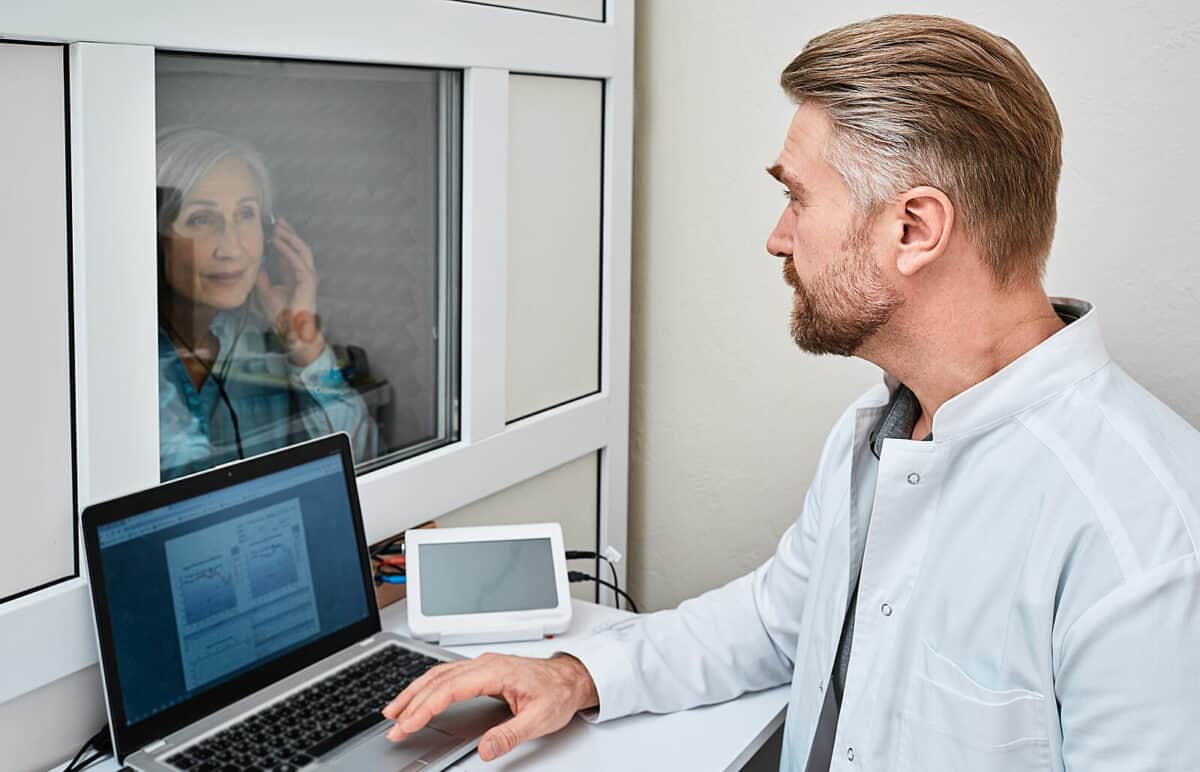Hearing is one of our most precious senses, allowing us to connect with the world and communicate with others. Yet, hearing loss is a common issue, affecting millions of people worldwide. The good news is that advancements in hearing loss prevention, diagnosis, and management have come a long way, offering hope and support for those experiencing hearing difficulties. In this article, we’ll explore what to expect at your hearing exam and discuss the latest developments in the field, emphasizing the importance of early detection.
The Importance of Early Detection
Early detection of hearing loss is crucial. Not only can it prevent further deterioration, but it can also significantly improve one’s quality of life. When hearing loss is detected and addressed early, individuals can maintain better communication with loved ones, reduce the risk of social isolation, and even prevent related health issues, such as cognitive decline.
Recent studies have highlighted the link between untreated hearing loss and cognitive decline, dementia, and an increased risk of falling. This underscores the importance of addressing hearing issues proactively. Hearing professionals play a vital role in this process by conducting thorough hearing exams.
The Hearing Exam Process
Case History:
Your hearing journey typically begins with a detailed case history. Expect questions about your medical history, any medications you are taking, and your exposure to loud noises. This information helps the hearing professional understand potential risk factors and the nature of your hearing difficulties.
Physical Examination:
A visual examination of your ear canal may be conducted to check for any visible abnormalities or blockages that could affect your hearing.
Audiometry:
This is the core of the hearing exam. You’ll be placed in a soundproof booth and asked to respond to a series of sounds, usually transmitted through headphones. The professional will measure your hearing sensitivity at different frequencies and intensities, providing a detailed audiogram.
The Latest Advancements in Diagnosis
Advancements in diagnostic tools have enhanced the accuracy of hearing exams. One significant development is the use of otoacoustic emissions (OAE) and auditory brainstem response (ABR) testing. OAE measures the sound waves emitted by the inner ear, while ABR records the brain’s response to sound. These tests provide valuable information, particularly in cases involving young children or individuals who have difficulty providing reliable feedback during traditional audiometry.
Additionally, smartphone applications have made self-assessment of hearing loss more accessible. While not a replacement for professional exams, these apps can serve as a preliminary screening tool, raising awareness about hearing health.
Addressing Hearing Loss
When a hearing loss is detected, various management options are available. These range from hearing aids and assistive listening devices to invasive procedures such as the cochlear implants. Advancements in hearing aid technology have been substantial, offering improved sound quality, noise reduction, and connectivity to smartphones and other devices. Some models are discreet and can be tailored to the patient’s specific needs.
Cochlear implants, on the other hand, are a solution for individuals with severe or profound hearing loss. These surgically implanted devices stimulate the auditory nerve directly and can restore a sense of sound to those who might not benefit from traditional hearing aids.
Recent Research and Potential Futuristic Interventions
Researchers are constantly working on innovative solutions to address hearing loss. One exciting area of development is gene therapy. Studies have shown promise in using gene therapy to regenerate damaged hair cells in the inner ear, which are responsible for translating sound vibrations into electrical signals. While these interventions are still in the experimental phase, they hold immense potential for the future of hearing restoration.
Additionally, researchers are exploring the use of stem cells to repair damaged inner ear structures. Stem cell therapy may one day offer a more natural and sustainable approach to hearing loss treatment.
Another area of interest is the development of advanced signal processing algorithms. These algorithms can improve speech recognition in noisy environments, making it easier for individuals with hearing loss to engage in conversations, even in challenging settings.
Compassion in Hearing Care
As hearing professionals, our commitment goes beyond diagnosing and managing hearing loss. We understand the emotional impact that hearing difficulties can have on individuals and their families. Compassion is at the heart of what we do. We aim to provide a supportive, patient-centered approach, focusing on your unique needs and concerns.
Support groups, counseling, and rehabilitation programs are available for those who may need emotional and practical support while adjusting to life with hearing aids or cochlear implants. Family involvement is encouraged, as it often plays a significant role in a patient’s journey to better hearing.
The journey of addressing hearing loss begins with a hearing exam, a vital step in early detection and management. Advancements in hearing care, from advanced diagnostic tools to cutting-edge interventions, offer hope and promise for the future. The importance of early detection cannot be overstated, as it can significantly improve one’s quality of life and prevent related health issues. As hearing professionals, we are here to guide you through this process with compassion and expertise. Hearing is a precious sense, and our goal is to help you enjoy it to the fullest.


